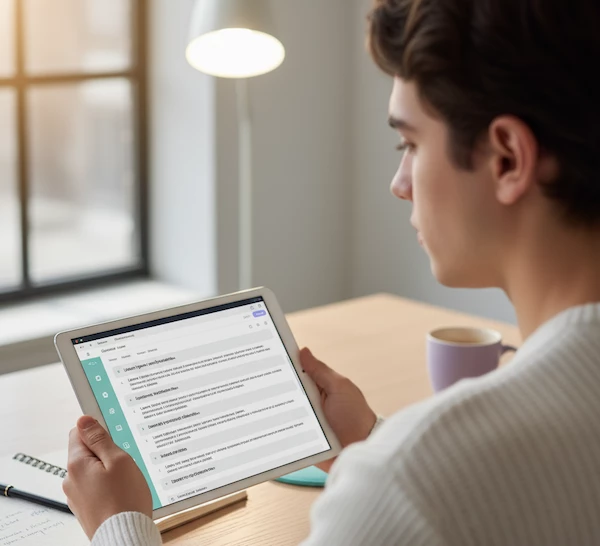General Job Search & Workplace FAQ
New to the job hunt or your first full-time role? We've got quick, no-jargon answers to the questions everyone has (but rarely asks out loud).

A resume is a 1–2-page summary tailored to a specific job. A CV is a longer, comprehensive academic/skills history (used mostly in research/academia or outside the U.S.). In most U.S. jobs: send a resume.
Not always, but it can help you stand out, especially when you lack direct experience. Keep it short (200–300 words), show you understand the role, and give one concrete example of relevant impact.
ATS = Applicant Tracking System. It scans applications for keywords. Match your resume to the job description, use standard section headers, and avoid over-designed templates with text embedded as images.
Internships, part-time work, freelance, volunteering, class projects, campus leadership, hackathons, content creation—anything that shows skills and results.
Hourly roles pay per hour worked and often qualify for overtime when eligible. Salaried roles pay a fixed amount per year and may be overtime-exempt depending on job type and location.
Check the job's "Location" or "Work Style."
- Remote: Work from anywhere (may still have location rules).
- Hybrid: Split between home and a worksite.
- In-Person/On-Site: You work at a physical location most or all days.
Your first days/weeks at a company: paperwork, tools access, training, and meeting the team. Ask for an onboarding checklist and 30-60-90-day goals.
Benefits are core compensation extras (health insurance, retirement, paid time off). Perks are nice-to-haves (snacks, gym discounts, WFH stipend).
Use ranges from the job post (if listed) or credible sources. Ask about the pay range early ("Can you share the budgeted range?"). Discuss total comp: base pay + bonus + equity + benefits.
A trial period (often 30–90 days) where performance and fit are evaluated. You're usually a regular employee, but some policies kick in after this period.


A non-compete limits where you can work after leaving; an NDA restricts sharing confidential info. Read them carefully and ask questions before signing.
PTO = paid time off (vacation/personal days). Sick time is for illness/appointments. Companies also list paid holidays. Policies vary by employer and location.
Some internships/temporary roles convert to full-time after a period. Ask about conversion criteria, timing, and pay.
Often yes. Research a fair range, highlight your value, and ask respectfully. If the pay is non-negotiable, ask about start date flexibility, relocation, sign-on, or development budget.
Either you or the employer can end employment at any time for any lawful reason. This varies by location; check local laws.